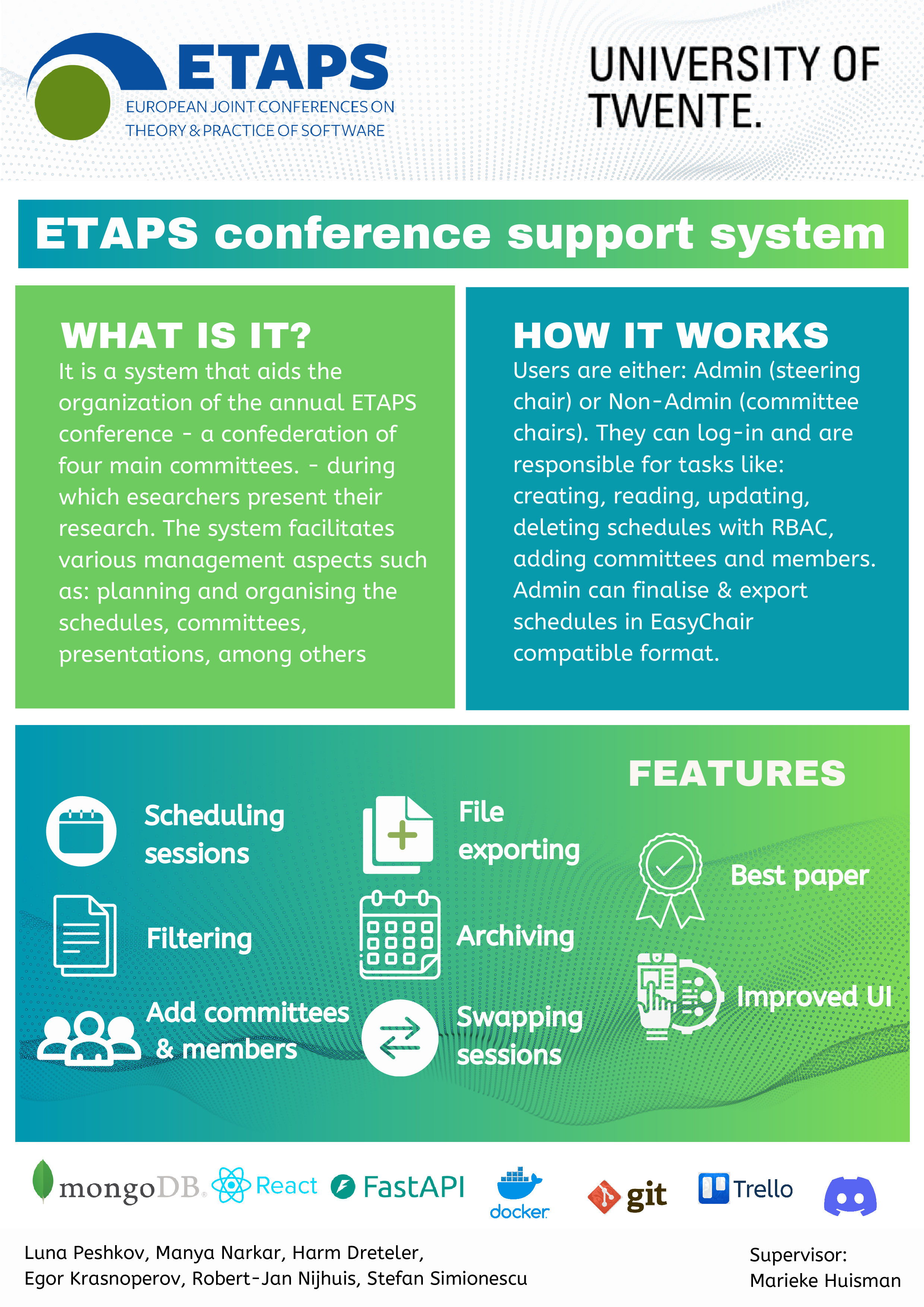


The ETAPS Conference Management System facilitates various management aspects of the ETAPS annual conference program such as scheduling sessions as well as managing committees. In this iteration of the system, our project further enhances the existing ETAPS Conference Management System by addressing critical areas of improvement. Key contributions include: improving the user experience (UX), strengthening role-based access control capabilities, adding features such as CSV and YAML imports and exports for different pages, best paper selection, filtering and sorting of different tables, swapping activities in schedules, collecting more metadata, enhanced duplicate detection, bug fixes, and automating various processes that stakeholders were previously required to conduct manually. These improvements allow for stakeholders to gain a smoother, more efficient, and productive experience in conducting the facilitation of academic collaboration.
The CS Design Project module is one of the two final modules of the Bachelor. In the design component of this module, students show that they master the entire design trajectory, from the first informal specification of requirements by a client to the delivery and presentation of a well-documented working product. Projects are submitted by clients from either inside or outside the University. Students perform the project in groups of 3-5 students under the supervision of a teacher from the Department of Computer Science. The supervisor is also the one who assesses the process and products of the group. Project deliverables include a project proposal, a design report, a presentation and a poster.
View the full design report for this project.

The ETAPS Conference Management System facilitates various management aspects of the ETAPS annual conference program such as scheduling sessions as well as managing committees. In this iteration of the system, our project further enhances the existing ETAPS Conference Management System by addressing critical areas of improvement. Key contributions include: improving the user experience (UX), strengthening role-based access control capabilities, adding features such as CSV and YAML imports and exports for different pages, best paper selection, filtering and sorting of different tables, swapping activities in schedules, collecting more metadata, enhanced duplicate detection, bug fixes, and automating various processes that stakeholders were previously required to conduct manually. These improvements allow for stakeholders to gain a smoother, more efficient, and productive experience in conducting the facilitation of academic collaboration.
The CS Design Project module is one of the two final modules of the Bachelor. In the design component of this module, students show that they master the entire design trajectory, from the first informal specification of requirements by a client to the delivery and presentation of a well-documented working product. Projects are submitted by clients from either inside or outside the University. Students perform the project in groups of 3-5 students under the supervision of a teacher from the Department of Computer Science. The supervisor is also the one who assesses the process and products of the group. Project deliverables include a project proposal, a design report, a presentation and a poster.
View the full design report for this project.